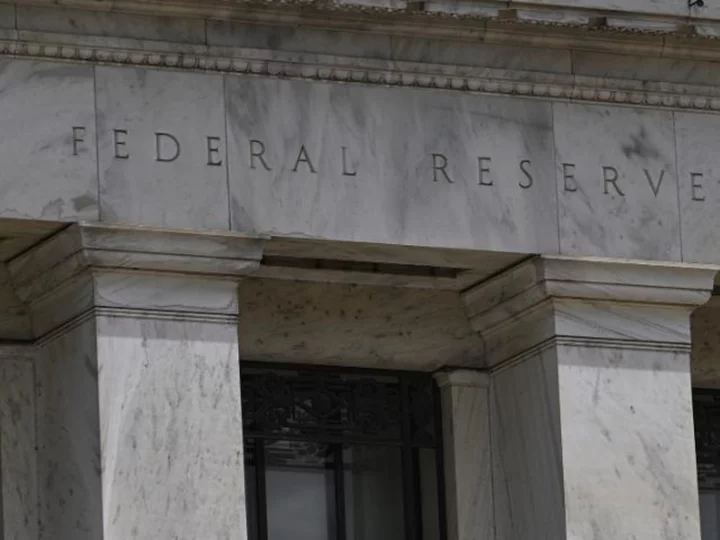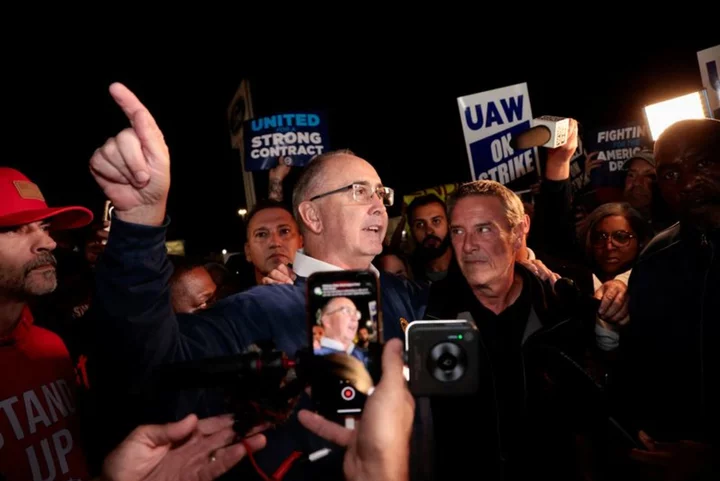On Wednesday, the Federal Reserve hit pause on its benchmark interest rate after hiking 10 times in a row in a battle to cool the US economy and tame inflation.
That rate-hiking campaign has also done something else: helped pump up the US dollar, maintaining an unexpected strength that reverberates across the economy. However, with the Fed's pause, many experts believe the dollar's muscle could start to give out.
The dollar index, which tracks the greenback against six other currencies, has fallen since hitting a 20-year high in September, but it's still trading at near multi-year highs.
"Given the fact that the Fed has raised interest rates in the US at the fastest pace in about 40 years... that's attracted flows, which has helped keep the dollar strong," Lisa Shalett, chief investment officer at Morgan Stanley Wealth Management, told CNN.
A strong dollar affects prices, tourism and trade
The ripple effect of a robust dollar permeates various parts of the economic picture, from international trade to tourism.
For one, a strong dollar directly impacts the cost of importing goods. Products made in foreign countries become cheaper, relative to American-made goods. That benefits customers of big box stores, like Walmart, that sell foreign-made goods. Even as the United States experiences inflation, these products stay relatively cheaper, Shalett said.
"One of the underappreciated dimensions of a strong dollar is that it weighs on inflation," she said.
However, there are downsides to the dollar's strength: US-made goods look more expensive in comparison to cheaper imports, reducing US exports, according to Joseph Gagnon, a senior fellow at the Peterson Institute for International Economics.
"When US companies aren't exporting as much, that means they're not producing as much, so they don't need as many workers," he said.
That's not the only way a strong dollar may hurt American workers and businesses, according to Gagnon.
While Americans may find trips abroad relatively cheaper during times of dollar strength, tourism to the United States may take a hit.
"It makes it more expensive for foreigners to come to the US, which reduces demand for US restaurants, hotels and attractions," Gagnon said.
Stronger than expected
The US dollar is often called a "safe haven currency" for its perceived stability. According to the Federal Reserve, it is the most used currency in foreign transactions.
Its recent persistent strength, even as the central bank attempts to tamp down the US economy, has surprised some who track the currency.
"The US dollar has been very strong because the US economy has been very strong — relatively stronger than most other economies," Gagnon said.
Relative weakness in European and Asian economies has also added investors' appetite for the dollar, according to Gagnon.
Weakness on the horizon?
Wall Street doesn't expect the dollar's rally to continue forever, though.
In a note to investors, Goldman Sachs recently said it estimates a "bumpy downside" for the dollar in the second half of this year and into 2024. Deutsche Bank told investors it expects "medium-term weakness" in the dollar, citing "an eventual dovish Fed pivot to easing," followed by rate cuts next year.
Not all experts agree that the conditions are ripe for a weaker dollar just yet.
"I don't see anything on the horizon that would weaken the dollar," Gagnon said.
But, in the longer term, several developments could challenge the US dollar's supremacy, according to Shalett.
She pointed to the United States' growing debt levels and a potential shrinking appetite from foreign investors in US debt, along with increasing talk of "dedollarization," meaning countries reducing their reliance on the US dollar as a reserve currency.









